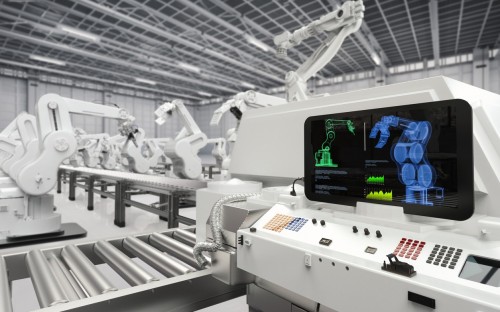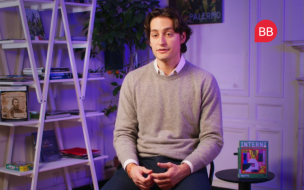That’s according to Frank Kauffmann, general manager at Philips in Eindhoven. Frank completed an Executive MBA at Maastricht School of Management (MSM) in the Netherlands in 2000 and has since taken on various general management positions at Philips with a focus on turnaround management.
He chose to pursue an MBA after working on a special joint assignment with a leading consultancy firm, which fed his appetite for a deeper and broader understanding of the business world.
“I chose MSM because of the diverse cohort who came from leading companies,” Frank explains. “Applying and comparing what we learned to real-life cases and examples from my fellow students was really important.
“Rather than translating all my learnings to my own company, I had the opportunity to share thoughts and observations with different nationalities who represented big multinationals and mid-size international companies—this provided a wealth of information.”
“The speed that digitalization currently disrupts traditional business models and allows new players to enter the market while forcing existing players to leave is enormous,” he continues. “Digitization, the Internet of Things (IoT), cloud storage. These offer great opportunities, but also require continuous organizational adaptation.”
With this in mind, Maastricht School of Management—located in one of the innovation and engineering hotspots of Europe—has recently increased its focus on technology and innovation throughout its degrees.
The school has announced four new initiatives this year to help students understand the nature, role and impact of technologies such as the IoT, big data, robotics and the cyber-production systems and circular economy models that these are facilitating.
These include launching a cluster of executive education program for managing the digital economy, establishing a unique endowed chair in innovation procurement, working on technological transfer and innovation in emerging countries, and strengthening a partnership with RWTH Aachen, the largest technical university in Germany.
“Technology is everywhere today but most businesses are not adopting new technology adequately or fast enough, and not benefiting from the innovation,” says Wim Naudé, MSM’s dean.
“We need more and better management if businesses are going to help tackle the challenges of modern society, like jobless growth, rising inequality, climate change, pressures on food and water, conflicts, and demographic change,” he continues.
“At MSM, we put our students in an environment where they are confronted with advanced thinking on the nature of tech and being a leader in a technological society. In the coming years, we’ll focus even more on helping businesses adopt and manage cutting-edge technologies, and be better at putting innovations to work.”
MSM celebrates its 65th anniversary this year, but it’s not standing still. Instead, it has a close eye on what’s driving change globally for the business of tomorrow.
“MSM has a unique, decades-old footprint in the emerging and developing world, offering world-class MBA programs with our partners in more than a dozen countries,” says Wim. “We experience daily the need, and realize the potential, of assisting managers and entrepreneurs to harness technology from the world’s frontier.”
RECAPTHA :
49
1f
0a
08







